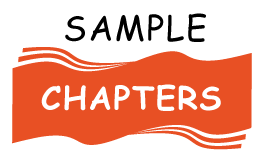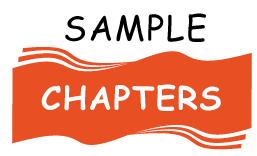Academic Books Promotion: Strategies and Best Practices

Promoting academic books presents unique challenges and opportunities distinct from the general book market. Academic texts are tailored to a niche audience, comprising students, educators, researchers, and professionals. Effective promotion strategies can significantly enhance the visibility and impact of these works, driving sales and academic engagement. This comprehensive guide outlines best practices for promoting academic books.
Understanding the Market
Identifying Your Audience
Academic books cater to a specialized audience. Identifying this audience is the first step in any promotion strategy. Consider the following groups:
- Students: From undergraduates to doctoral candidates, students rely on academic books for their studies.
- Educators: Professors and teachers use these texts for curriculum development and teaching.
- Researchers: Scholars and researchers utilize academic books for reference and further research.
- Professionals: Industry professionals may also refer to academic books for advanced knowledge and professional development.
Market Research
Conduct thorough market research to understand the needs and preferences of your target audience. This can include:
- Surveying potential readers to gather insights on their reading habits and preferences.
- Analyzing trends in academic publishing to identify popular topics and emerging fields.
- Monitoring competitors to understand their promotion strategies and market presence.
Promotion Strategies
Online Presence
Author Websites and Blogs
Creating a dedicated website or blog for the author can serve as a central hub for all promotional activities. This site should include:
- Book details: Comprehensive information about the book, including summaries, table of contents, and sample chapters.
- Author bio: Information about the author’s academic background and expertise.
- Blog posts: Regular updates on related academic topics, research findings, and book updates to engage with readers.
Social Media
Social media platforms offer an excellent way to connect with the academic community. Effective strategies include:
- LinkedIn: Ideal for professional networking and sharing academic content. Join and engage in relevant academic groups.
- Twitter: Use Twitter to share updates, participate in academic discussions, and promote book events like webinars and conferences.
- Facebook: Create a dedicated page or group to build a community around your academic interests.
Academic Networks and Conferences
Promote your book through academic networks and at conferences. This includes:
- Presenting your book at relevant academic conferences and seminars.
- Networking with academics, researchers, and professionals to spread the word.
- Participating in online academic forums and discussion groups.
Collaboration with Institutions
Collaborate with academic institutions such as universities and research centers:
- Book talks: Organize book talks and lectures at universities.
- Curriculum integration: Work with educators to include your book in course curricula.
- Library placement: Ensure your book is available in university libraries.
Reviews and Endorsements
Positive reviews and endorsements can significantly boost credibility and sales:
- Peer reviews: Seek reviews from respected academics in the field.
- Academic journals: Submit your book for review in reputable academic journals.
- Endorsements: Obtain endorsements from well-known scholars and educators.
Digital Marketing
Email Campaigns
Email marketing remains one of the most effective promotion tools:
- Newsletters: Regularly update your audience with newsletters containing book updates, author insights, and related academic content.
- Academic mailing lists: Use academic mailing lists to reach out to potential readers and institutions.
SEO and Content Marketing
Optimize your online content to enhance discoverability:
- Keyword research: Identify and use relevant keywords related to your book’s subject matter.
- Blog posts: Write SEO-optimized blog posts on related academic topics to attract organic traffic.
- Guest posts: Contribute articles to academic websites and blogs to reach a wider audience.
Utilizing Book Promotion Websites
List your academic book on specialized book promotion websites. Here are some top platforms:
1. WriteBK.com
WriteBK.com offers a range of services tailored for academic authors, including book listings, promotional packages, and networking opportunities with other authors and academics.
2. Goodreads
Goodreads is a popular platform for readers and authors. Academic authors can create an author profile, list their books, and engage with a community of readers and scholars.
3. LibraryThing
LibraryThing is a cataloging and social networking site for book lovers. Academic authors can list their books, participate in discussions, and connect with libraries and readers.
4. ResearchGate
ResearchGate is a social networking site for scientists and researchers to share papers, ask and answer questions, and find collaborators. Authors can share their academic books and publications.
5. Academia.edu
Academia.edu is a platform for academics to share research papers. Authors can use it to promote their books, engage with other researchers, and track analytics.
6. Google Scholar
While not a traditional promotion site, Google Scholar allows authors to create profiles and list their publications, making their books discoverable to a global audience of researchers and academics.
7. ORCID
ORCID provides a persistent digital identifier for authors, which helps in linking and showcasing their academic works, including books. Authors can use ORCID profiles to promote their books and connect with the academic community.
8. JSTOR
JSTOR is a digital library for scholars, researchers, and students. Authors can ensure their books are available on JSTOR to reach a broad academic audience.
9. Project MUSE
Project MUSE offers access to high-quality humanities and social sciences content. Authors can work with their publishers to get their books listed on Project MUSE.
10. BookBlastBoost.com
BookBlastBoost.com specializes in promoting academic and non-fiction books through targeted marketing campaigns, social media outreach, and email marketing.
11. BookBub
BookBub offers promotional opportunities for authors through targeted email campaigns and featured deals. Academic authors can reach a broader audience by listing their books.
12. H-Net Reviews
H-Net is an interdisciplinary organization of scholars and teachers dedicated to developing the enormous educational potential of the Internet. H-Net Reviews in the Humanities and Social Sciences publishes reviews of academic books, which can help in promoting your work.
13. ChronicleVitae
ChronicleVitae is a service of The Chronicle of Higher Education. It’s a professional network for higher education that offers job listings, career advice, and tools for career development. Authors can use it to promote their academic books to educators and researchers.
14. The Scholarly Kitchen
The Scholarly Kitchen is a blog established by the Society for Scholarly Publishing. It covers a wide range of topics related to academic publishing. Authors can engage with the community and promote their books through guest posts and discussions.
15. IntechOpen
IntechOpen is the world’s leading publisher of open access books. Authors can publish their academic books and make them freely available to a global audience, increasing visibility and citation.
16. Google Books
Google Books allows authors to upload their books and make them searchable. This can increase discoverability and drive traffic to purchase sites.
17. BookBuzz
BookBuzz provides book marketing and promotion services. They offer packages tailored to academic authors to help promote their books through various channels.
18. NetGalley
NetGalley is a platform where authors can upload their books to be reviewed by book reviewers, bloggers, librarians, and media professionals. It’s an excellent way to generate buzz and gain reviews.
19. Scribd
Scribd offers a vast library of books, audiobooks, and documents. Authors can publish their academic books on Scribd to reach a global audience.
20. WorldCat
WorldCat connects you to the collections and services of more than 10,000 libraries worldwide. Ensuring your book is listed on WorldCat can help increase its visibility among academic libraries and researchers.
21. Amazon Author Central
Amazon Author Central allows authors to create a profile, add their books, and manage their bibliographic information. Leveraging Amazon’s vast customer base can significantly boost book sales.
22. PubMed Central
PubMed Central is a free full-text archive of biomedical and life sciences journal literature. Academic authors in these fields can ensure their books are accessible through PubMed Central.
Conclusion
Expanding your reach through these academic book promotion websites can significantly enhance your book’s visibility and impact. By utilizing these platforms, engaging with the academic community, and leveraging digital marketing strategies, you can effectively promote your academic books and achieve greater success in the competitive academic publishing landscape. At samplechaps.com, we are committed to supporting authors with the tools and resources needed for successful book promotion.



